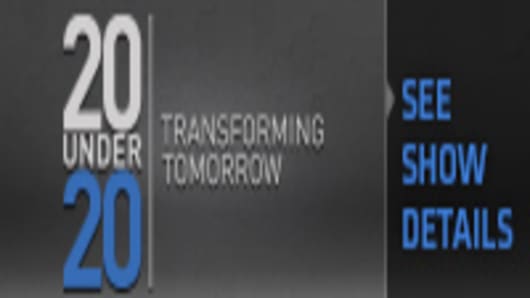But Shakespeare didn’t read Shakespeare to become Shakespeare. When we say college isn’t necessary for success, we also mean that’s true for the brilliant, vital few who want to build something of lasting value now, rather than waiting, going through the motions for four years while accumulating debt.
Last year we started the 20 Under 20 Thiel Fellowship because we wanted to help young entrepreneurs and visionaries get started on their ideas as soon as possible. During the two-year program, each fellow receives $100,000 and mentorship from our network of innovators, engineers, scientists, thought leaders, and business development experts.
Our first class has started companies, secured a book deal, raised million-dollar funding rounds, won international awards and sparked a do-it-yourself educational movement. Inspired by their success, on June 13, we announced our second class of Thiel Fellows.
By no means are we telling all college students that they should drop out. But we do encourage all of those students on the threshold to think hard about their choices. If going to college requires taking on tens of thousands of dollars in debt, we advise you to learn a set of skills to pay it off. And above all, don’t go into debt if you can avoid it.
And yet, even with this warning, the bubble in higher education is still inflating and still frightening. The cost of college has gone up 439 percent since 1982, and the quality of learning has stagnated.
This is the opposite of what you would expect in a competitive market. You would expect quality to increase as prices fell.
Instead of yearly improvements — like we see with smart phones and tablets — we find this set of deplorable facts about higher learning:
- In 2012, 54 percent of recent college graduates are underemployed or unemployed, even in scientific and technical fields.
- There are 115,000 janitors, 83,000 bartenders, 323,000 restaurant servers and 80,000 heavy-duty truck drivers with bachelor's degrees. Needless to belabor, these jobs do not require the BA.
- More than forty percent of students fail to graduate from four-year colleges within six years.
- Median wages for those with a bachelor’s degree are down over the last ten years.
- Total student loan debt has surpassed $1 trillion. This is more than total credit-card debt in America.
- Unlike mortgage holders, students cannot declare bankruptcy to discharge their debts. Outside of repayment, only death and disability will eliminate the debt.
- The average college student spends fewer than thirty hours per week on their studies.
- Thirty six percent of students do not show a significant improvement in learning over four years in college.
- Universities face no consequences for teaching useless subjects or for pretending to teach useful ones to students who come out of school with zero skills.
How did it come to this?
There aren’t many industries where the market leaders are the same after two hundred and fifty years. Besides colleges, three other industries come to mind: religions, governments, and graveyards.
There are roughly two models of how higher education works, the human capital model and the signaling model. The human capital story is the one every parent believes in. It says students accumulate skills in college that they then use in their careers to obtain higher lifetime earnings.



